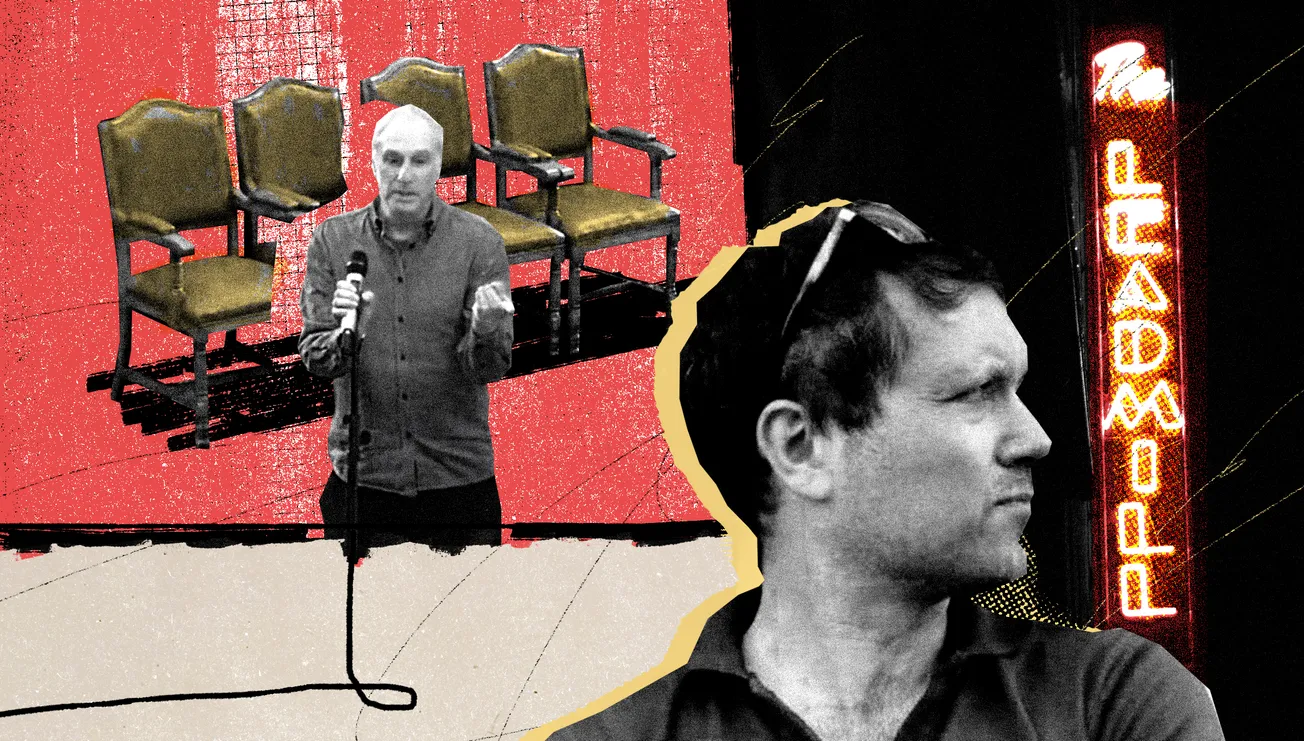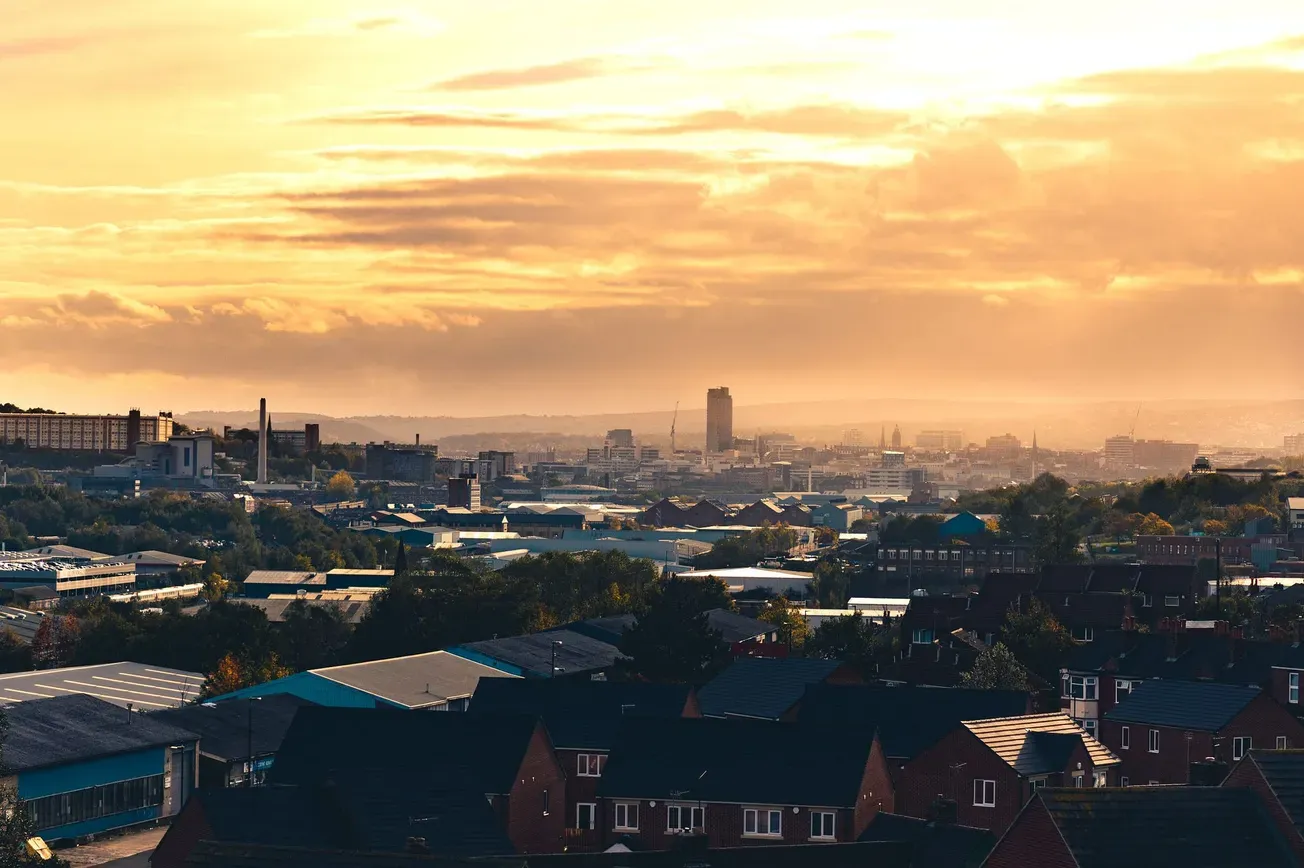Good afternoon members — and welcome to Thursday’s Tribune. Just for a change, it’s Sophie Atkinson here. I’m a journalist who occasionally gets the joy of editing the Tribune’s silky prose. I was excited to work on today’s piece: in it, Lucy Brownson documents the history of women getting involved in trade union organising in the Steel City. We commissioned this to celebrate International Women’s Day, which took place yesterday.
I used to live for many years in Berlin, where IWD is now a public holiday and where Berliners often use this freed-up time to attend a demo. I still feel a lot of nostalgia for the way politics felt more woven into the everyday there, so I love the fact that even in the UK, where women still have to work the day, you see so many activists and allies out protesting injustices on the occasion. I hope you had a wonderful IWD and enjoy the essay.
But before that — pollution in the River Rivelin and the tree saga rages on in our news roundup, plus will this be the year you try stand-up paddleboarding?
Editor’s note: As always on Thursday, the first part of this newsletter is available to all but only members get to see the full version. While we’d love to give away all our journalism for free, that would mean we wouldn't be able to pay freelancers like Lucy Brownson, who wrote today’s piece. If you enjoy our stories and want to see us grow and thrive, why not join us as a member today? As well as getting to read the story below, you’ll also be helping to secure the future of high-quality journalism in Sheffield.
Mini-briefing
🌳 Anyone who hoped that Monday’s report would have drawn a line under the tree saga better get used to disappointment. As journalists and activists have poured over the report’s 227 pages over the last three days, more damaging revelations have come to light. These include the news, reported by Chris Burn in the Yorkshire Post, that the 17,500 felling target was actually being pushed by Sheffield City Council on Amey, rather than the other way round. The report coming out in the middle of election season has clearly ratcheted up the fractious mood a few notches. However, there have been renewed calls from Green leader Douglas Johnson and Lib Dem leader Shaffaq Mohammed for council leader Terry Fox and finance committee co-chair Bryan Lodge to resign over their roles in the fiasco.
🚌 What’s driving inequality in Sheffield? That’s the question posed by this fascinating piece in Now Then which looks at disparities in car ownership across the city. In some of the most affluent parts of Sheffield like Fulwood, Millhouses and Dore, fewer than 11% of households do not have a car. However, in areas including Darnall, Tinsley, Burngreave and Firth Park, this figure rises to between 40-50%. Author Charlie Heywood-Heath argues that this stark inequality means far more resources need to be put into public transport and active travel.
💦 There was an excellent package on BBC Radio Sheffield yesterday morning about pollution in the River Rivelin. Reporter Simon Thake talks to locals about their fears that plant and animal species are suffering due to sewage entering the river during periods of heavy rain, something that could also affect people paddling. Also interviewed in the package is Walkley councillor Tom Hunt, who tells breakfast host Toby Foster that it’s up to Yorkshire Water to prevent sewage entering the river by investing in the water network.
Things to do
🧵 The always-popular Craft and Flea makers’ market returns to Sheffield Cathedral on Saturday, 11 March (11am-5pm), bringing the best of the city's local produce and makers, along with street food and flea market stalls offering vintage and collectables. Entry is £2.50 all day but children under 12 go free. The Totley Vintage Fair will also be taking place on the same day at St John's Church Hall on Abbeydale Road South from 10am-4pm. Entry is £1.
🎭 Starting on Saturday, 11 March at the Crucible is The Good Person of Szechwan, Bertolt Brecht’s seminal exploration of the cost of being good. When three gods reward Shen Te with a life-changing sum of money, she finds the stability she's always dreamed of. But the struggle is not over yet. Forced to question the cost of her own survival, she resorts to scheming and deceit to flourish in a capitalist world. Tickets are £15-£33 and the show runs until Saturday, 1 April.
🏄 As part of the Festival of the Outdoors, try Stand Up Paddleboarding (SUP) at Victoria Quays. After an introduction to the equipment and short safety briefing, you’ll learn how to control the board while kneeling before eventually getting stood up. You’ll then put your new found skills to use along the Sheffield and Tinsley Canal. Two sessions take place on both Saturday, 11 and Sunday, 12 March (9.30-12.30 and 1.00-4.00). I had a go at this last year and thoroughly enjoyed myself (despite falling in multiple times!). Tickets are £45 per person.
By Lucy Brownson
It’s a characteristically chilly, overcast February afternoon in Sheffield, and – uncharacteristically, for 12 o’clock on a Wednesday – thousands of people are pouring down Division Street. Bundled up against the biting cold, many hold up placards (“I’d rather be teaching”, “On strike to win back my pension”, and a personal favourite, “Ay up! Pay up!”). Others brandish flags and banners from the Trades Union Congress, Unite the Union, UNISON and the Public and Commercial Services Union. Clusters of people in branded University and College Union beanie hats make up hot-pink colour blocks amidst the sea of people slowly meandering towards the steps of City Hall. There are babies, great-grandparents, and dogs among the multitudes – this protest concerns everyone, after all.
This was the scene in Sheffield just over a month ago, when more than 6,000 people joined a day of strike action against pay and conditions. Among them were teachers, university staff, transport workers, firefighters and civil servants, all demanding liveable wages and fair, secure terms of employment. The crowd was noticeably young – many of those striking are junior workers on fixed-term or zero-hours contracts – and noticeably female-dominated, with huge numbers of women teachers from the National Education Union and female academics from the UCU.
The staggering turnout aside, anyone who’s set foot outside their house recently (in Sheffield or anywhere else for that matter) has probably seen similar sights: people picketing their workplaces, voicing their grievances in the streets, and gathering together in solidarity with others calling for fairer treatment for themselves and all workers. This wave of industrial actions sweeping through the public sector has been dubbed Britain’s Winter of Discontent, in a nod to the widespread strikes of 1978-79. It follows directly on from the outbreak of a pandemic that brought about massive job losses among women in particular and saw healthcare workers rewarded for their lifesaving effort not in money or improved conditions, but in claps.

Among the masses of workers currently taking part in one of the largest mass strikes the country has ever seen, a common thread is that many of those on strike are women, working in female-dominated industries – in the NHS, for instance, women make up nearly 77% of the workforce, while 76% of teachers are women. Now, as the Government rushes to pass an anti-strike bill that would effectively ban all-out strikes in public services, trade unionists and equalities campaigners have called out the bill as out-and-out sexist. The burning question: why are so many people in female-led industries on strike right now?

Comments
Sign in or become a Sheffield Tribune member to leave comments. To add your photo, click here to create a profile on Gravatar.







